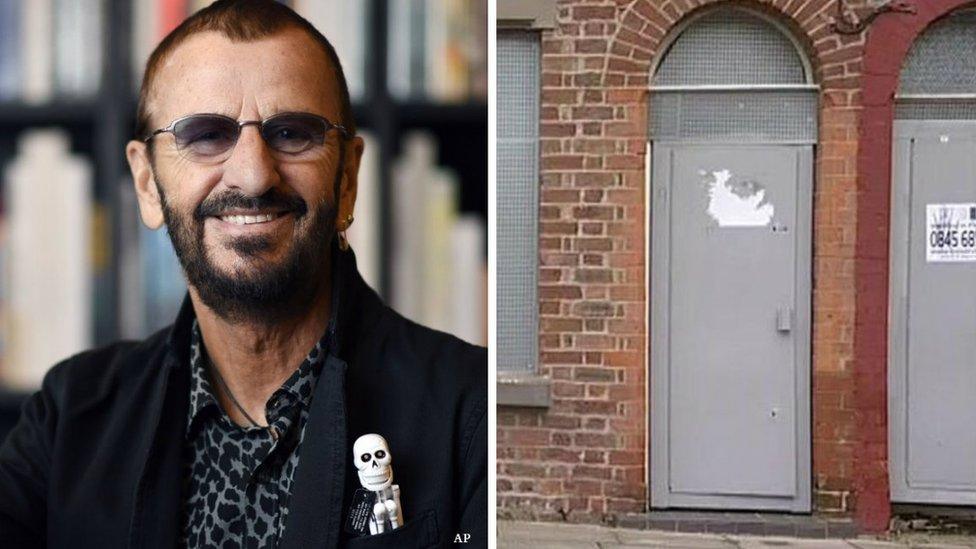How The Beatles still grip Liverpool
- Published
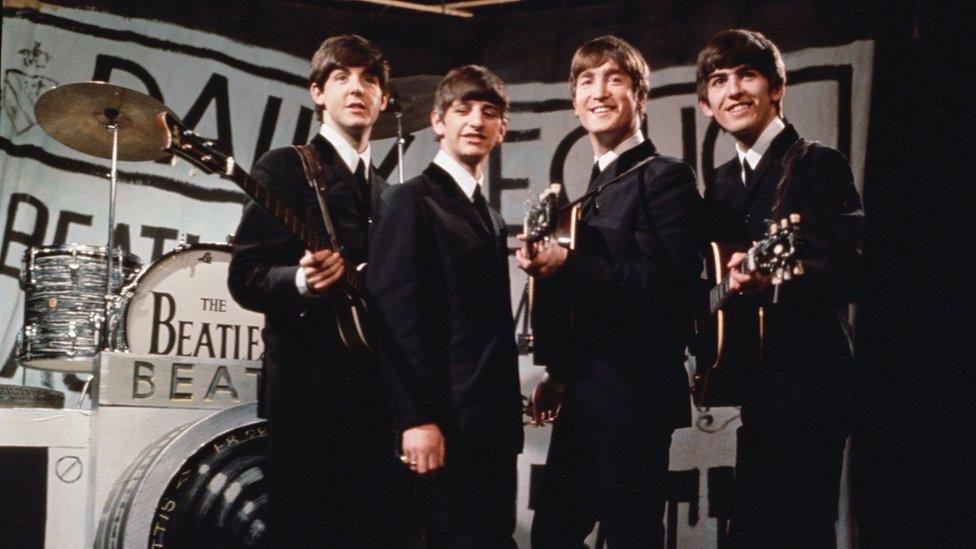
The Beatles still generate £82m a year worth of trade in Liverpool
Forty-six years after they split, The Beatles are responsible for one in every 100 jobs in their home city of Liverpool. That was one of the standout statistics of the group's financial legacy released in a report this week. BBC News looks at the numbers behind the Fab Four.

Can't buy me love
A Liverpool City Council report found the enduring popularity of John Lennon, Sir Paul McCartney, George Harrison and Ringo Starr still supported some 2,335 jobs in the city, external.
Latest figures from the council , externalshow there are about 230,800 jobs in total in the city. So that means about 1 in every 100 jobs in Liverpool relies in some way on The Beatles. That is not bad for a band that broke up in 1970.
We can work it out
The £82m impact of The Beatles
1 in 100
jobs in Liverpool are connected with interest in The Beatles
-
2,335 roles sustained by Fab Four
-
230,800 jobs in total in Liverpool
-
1m to 2m visitors a year said The Beatles were why they came
-
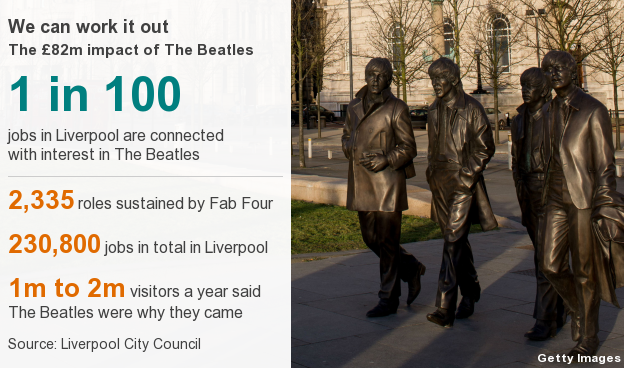
This might, however, be an underestimate, according to Professor Richard Evans from Liverpool John Moores University, because the figures do not take into account the marketing value of the brand or the number of people staying at non Beatles-themed hotels.
The report also could not put an exact figure on how many visitors a year cite The Beatles as their main reason for visiting. Local entrepreneurs put it at about one million. The Liverpool City Region Local Enterprise Partnership, made up of business and council leaders, say it is two million.

Day tripper
Tourism is the most obvious place to find jobs connected with The Beatles. According to researchers from the University of Liverpool and Liverpool John Moores University, about a quarter of a million people a year pay to visit The Beatles Story while The Cavern Club, where the Fab Four made their name, admits 800,000 people a year for free to listen to live music.
The childhood homes of John Lennon and Sir Paul McCartney also attracted 10,400 visitors between them on minibus tours. Numbers are controlled because the houses are in residential areas.
Ticket to ride
The Beatles Story has the largest permanent exhibition on the band
4 million
visitors since 1990
-
70%+ from overseas
-
10,400 a year visit Lennon and McCartney's childhood homes
-
135 staff employed between The Beatles Story, Cavern Club and Fab Four-themed museums
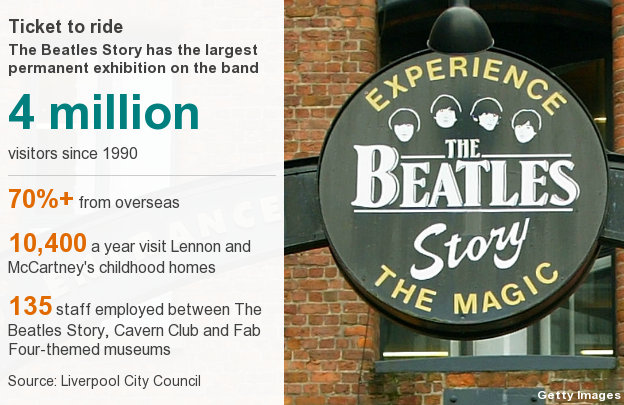
And when it came to tours of the places that inspired The Beatles - the Strawberry Field children's home and Penny Lane to name but two - an estimated 15 to 20 coaches a week come to Liverpool for this reason.
Out of tour guides who responded to a survey for the report's authors, about a fifth had specific "Beatles-related qualifications".

I'm only sleeping
One in 10 hotel rooms in Liverpool city centre has either an overall Beatles theme or the building hosts major Beatles events, which the report says is 553 in total.
However, there is a big difference between the biggest of those hotels, the 402-room Britannia Adelphi, which hosts events connected with International Beatles Week, and those dedicated to and themed around the band's legacy.
The latter includes the 110-room Hard Days Night Hotel, with pictures on the walls and suites dedicated to Lennon and McCartney. The Lennon Suite even has a white piano.
There is also the Yellow Submarine, a boat at the Albert Dock painted yellow and branded Fab Four but made as a copy of the submarine in the Sean Connery film, The Hunt for Red October.
Additionally, there is the Penny Lane Hotel, the Sefton Park Hotel, home to original band member Stuart Sutcliffe, and Epstein House, once the home of Beatles manager Brian Epstein's father.
"And that's an invitation...
...to make a reservation"
£13m
annual turnover by Liverpool hotels with Beatles themes and events
-
400 jobs in 6 hotels that host major Beatles events or have band decor
-
65% of overseas visitors say The Beatles are key reason for staying
-
£23m cost of developing the 110-room Hard Day's Night Hotel (pictured)
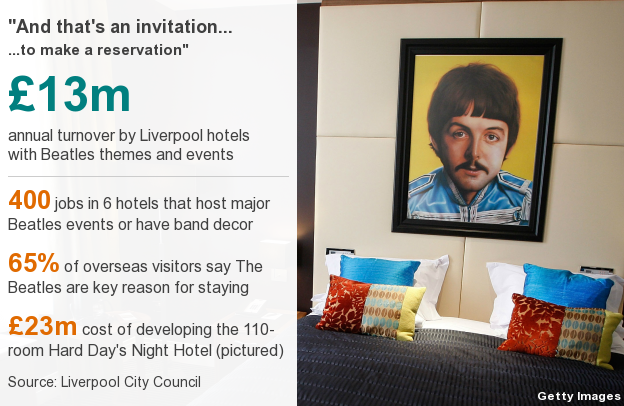

All things must pass
McCartney founded the Liverpool Institute for Performing Arts, alongside its principal Mark Featherstone-Witty, in 1996. It cost £20m with the funding coming from McCartney and various other sources.
Liverpool Hope University also has a close association with The Beatles, running a "Beatles, Popular Music and Society" masters degree, external.
Between them the institutions take about 735 students a year. And those students spend money. About £10.3m a year, in fact, goes into the wider economy.
Do you want to know a secret?
£10.3m
spent locally per year by students of the Liverpool Institute of Performing Arts and Liverpool Hope University
-
15 to 30 students take the Beatles, Popular Music and Society MA at Liverpool Hope University each year
-
£500,000 made by the university from the MA or Beatles-related activity
-
1,000 international students went to Sir Paul McCartney's LIPA 2006-13
-
720 full time students at LIPA
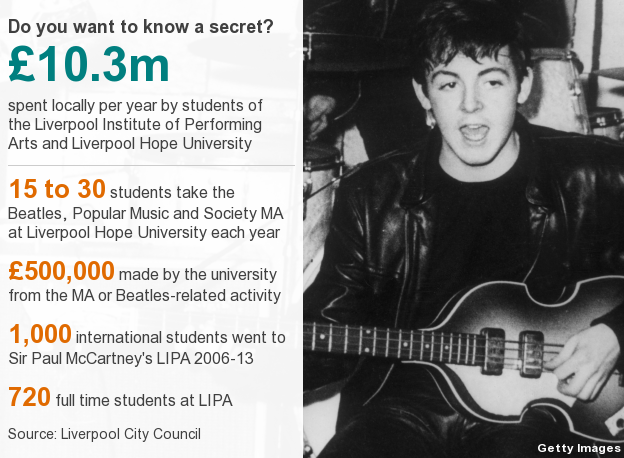

Here, there and everywhere
The overall impact of The Beatles may well be higher than the £82m the academics and economists arrived at. They stripped out economic benefits they said would have materialised anyway and those which benefitted the wider 'city region' around Liverpool or the rest of the UK's economy in general.
So how much do The Beatles still contribute to the UK or indeed the world?
"Calculating the equivalent value at national and global level would be a substantial, expensive undertaking because it would involve media monitoring of coverage in many different kinds of media and in the many countries where The Beatles are known," the report said.
"The sums involved would undoubtedly be enormous. For example one radio station in Mexico plays Beatles music for an hour every day. Four TV documentaries about The Beatles recently screened in China were watched by 70m and a further 50m viewed them online."
Finding out, then, would be a whole other magical mystery tour.
- Published8 February 2016
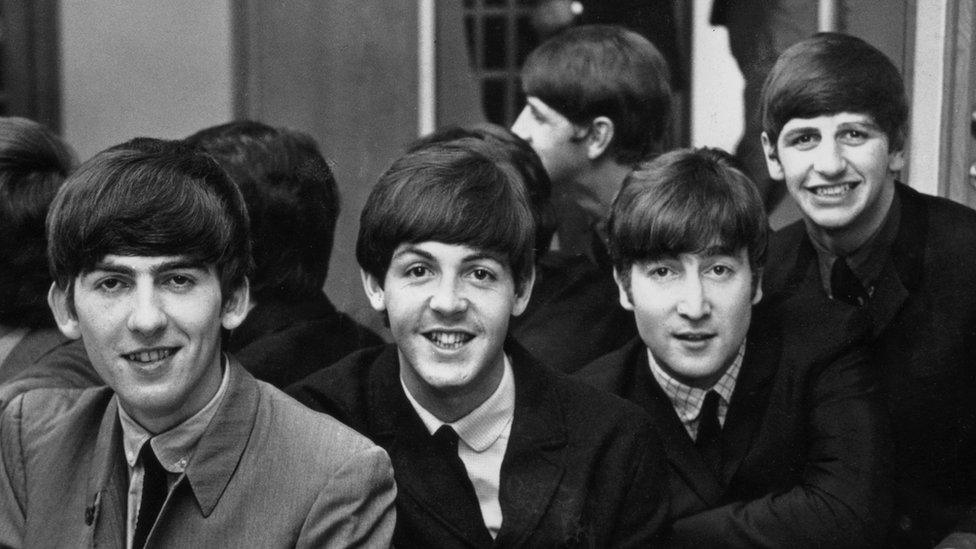
- Published5 February 2016
